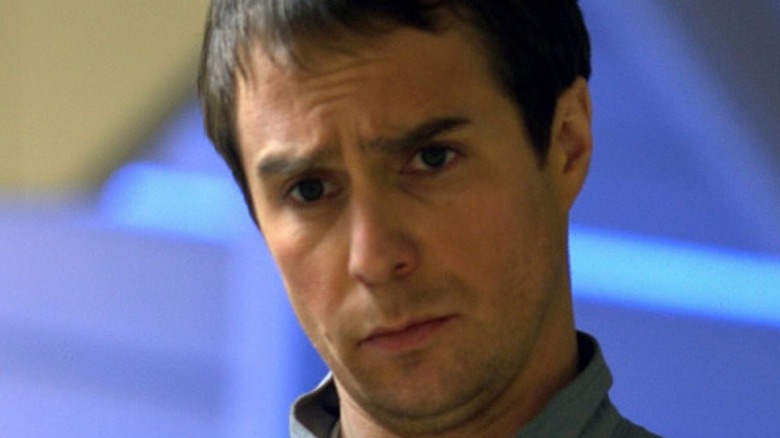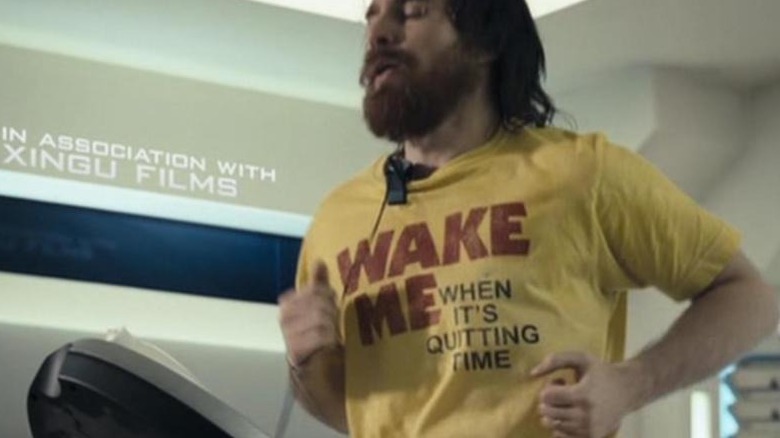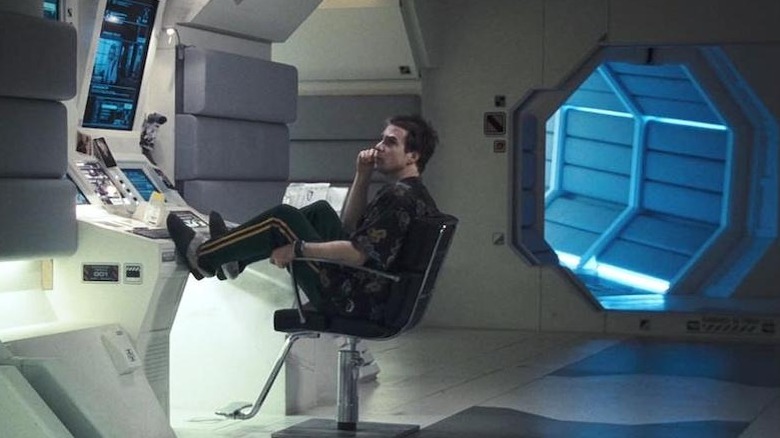Things You Only Notice About Moon After Watching It More Than Once
When "Moon" arrived in 2009 from director Duncan Jones, most audiences didn't expect to see Sam Rockwell deal with a very human existential crisis disguised in a science-fiction setting. It's a brilliant story, with the "Jojo Rabbit" and "Iron Man 2" actor starring as Sam Bell, a man nearing the end of his three-year contract mining Helium-3 from soil on the Moon for Lunar Industries. It's set in the not-too-distant future, during a time when only one person is needed to man the operation, which provides an alternative fuel for the human race.
But when Sam gets in an accident involving a lunar rover, the computer system GERTY thinks the worker was killed and wakes up a clone of Sam, who has no memories of the crash. It's revealed that Lunar Industries has been manufacturing clones with a three-year lifespan in order to minimize costs of flying astronauts up to the Moon. Faceless corporations with no morals who are only out to make a profit? It's a formula that, sadly, always rings true.
Before the film makes the surprising reveal about all the different Sam Bells, there's a number of hints that things aren't what they seem.
Foreshadowing is a full-time gig in Moon
During the film's opening, "Warcraft" director Duncan Jones subtly planted the idea that the Sam Bell audiences are introduced to from the beginning isn't the only one lying in wait. To start with, Sam Rockwell is credited more than once in what is, at first glance, just a strange style choice. It's most obvious when Bell is running on the treadmill to stay in shape — not only does Rockwell's name appear next to him, but it also shows up in the background of the Sarang Station. The lettering isn't as big as the one seen next to Rockwell, but it's a great nod to the fact that the star plays multiple versions of himself in "Moon."
Of course, there's also the T-shirt Sam's wearing on the treadmill: "Wake me when it's quitting time." Each new clone is woken up by GERTY when the previous version of Sam has deteriorated following his three-year mission. He's literally wearing his own fate across his chest. Then, there's the soundtrack. Sure, Clint Mansell's eerily intense score for "Moon" is perfect, but when Sam wakes up every day, his alarm is Chesney Hawkes' "I Am The One And Only."
The implication is that each clone is definitely not the one and only Sam Bell, but they wake up believing they are the only one. To be fair, why would they not? Lunar Industries has implanted each one with memories of the original Sam's life on Earth, making them excited to return home to their wife and daughter. The tagline for the film also tiptoes around the clone plot: "The last place you'd ever expect to find yourself" Appropriate, as Sam literally finds multiple versions of himself.
Moon isn't as fictional as we first thought
Rewatching "Moon" after a global pandemic makes the film feel startlingly relevant. No, Sam doesn't have to lock himself away to avoid a deadly virus, but his isolation feels all too familiar. It's clear from the very beginning that he's desperate for human contact, but all he has for company is the Artificial Intelligence named GERTY, who happens to be voiced by Kevin Spacey. It's easy to understand Sam's plight as he's trapped thousands of miles away from those he thinks are his loved ones.
Thankfully, many of us haven't had the communication issues that Sam has — as his attempts to phone home are all cut off by Lunar Industries and GERTY, so that he doesn't suspect anything about his true nature. Maybe it's just us, but his lonely life seemed eerily relatable as he stuck to the same routines to give every day some meaning. It just makes "Moon" more impactful as a tale about resilience, the importance of human contact and socializing, and inconsiderate corporate greed.
It'll be interesting to see if "Moon" only becomes more relevant with time. With the right advances in technology, we could have clones of ourselves who have strong opinions about the way they're depicted in Duncan Jones' film.


